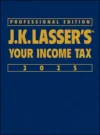Veteran with Anxiety Subject to Failure-to-File Penalties
A taxpayer who fails to file a tax return on time can avoid penalties by showing reasonable cause for the failure. The Tax Court determined, however, that reasonable cause did not exist under the following set of facts.
A veteran from Desert Storm who had been honorably discharged and was working as well as running a sole proprietorship experienced anxiety following the events of September 11, 2001. Also, his father became ill and he was the caretaker. He failed to file returns for 2001, 2002, and 2003, arguing that his situation was reasonable cause for avoiding penalties.
Reasonable cause for failure to file may exist if a taxpayer’s or a family member’s illness or incapacity prevents the taxpayer from filing his or her tax return, but not if the taxpayer is able to continue his or her business affairs despite the illness or incapacity. The Tax Court did not find that his anxiety or his father’s illness prevented him from filing returns. He was able to manage his business affairs, working 14 to 16 hours a day, not only holding down a full-time job with significant management responsibilities but also operating his sole proprietorship. Therefore he was subject to penalties.
Deductions
Items directly reducing income. Personal deductions such as for mortgage interest, state and local taxes, and charitable contributions are allowed only if deductions are itemized on Schedule A, but deductions such as for alimony, capital losses, moving expenses to a new job location, business losses, student loan interest, and IRA and Keogh deductions are deducted from gross income even if itemized deductions are not claimed.



